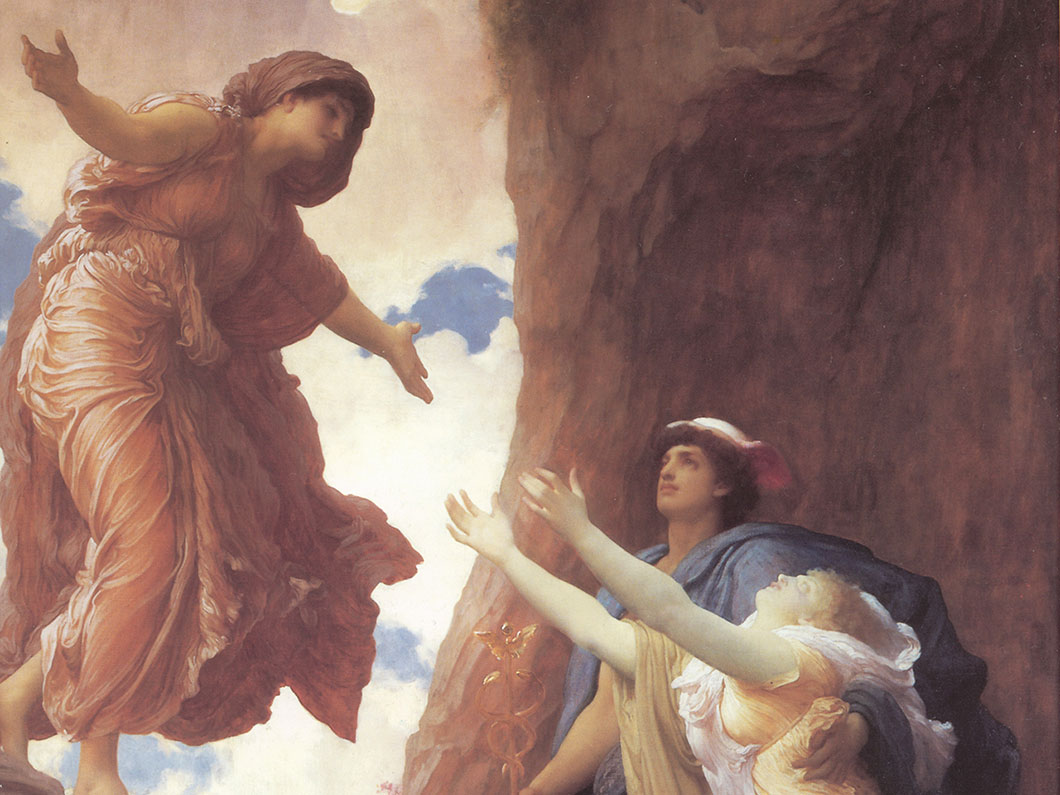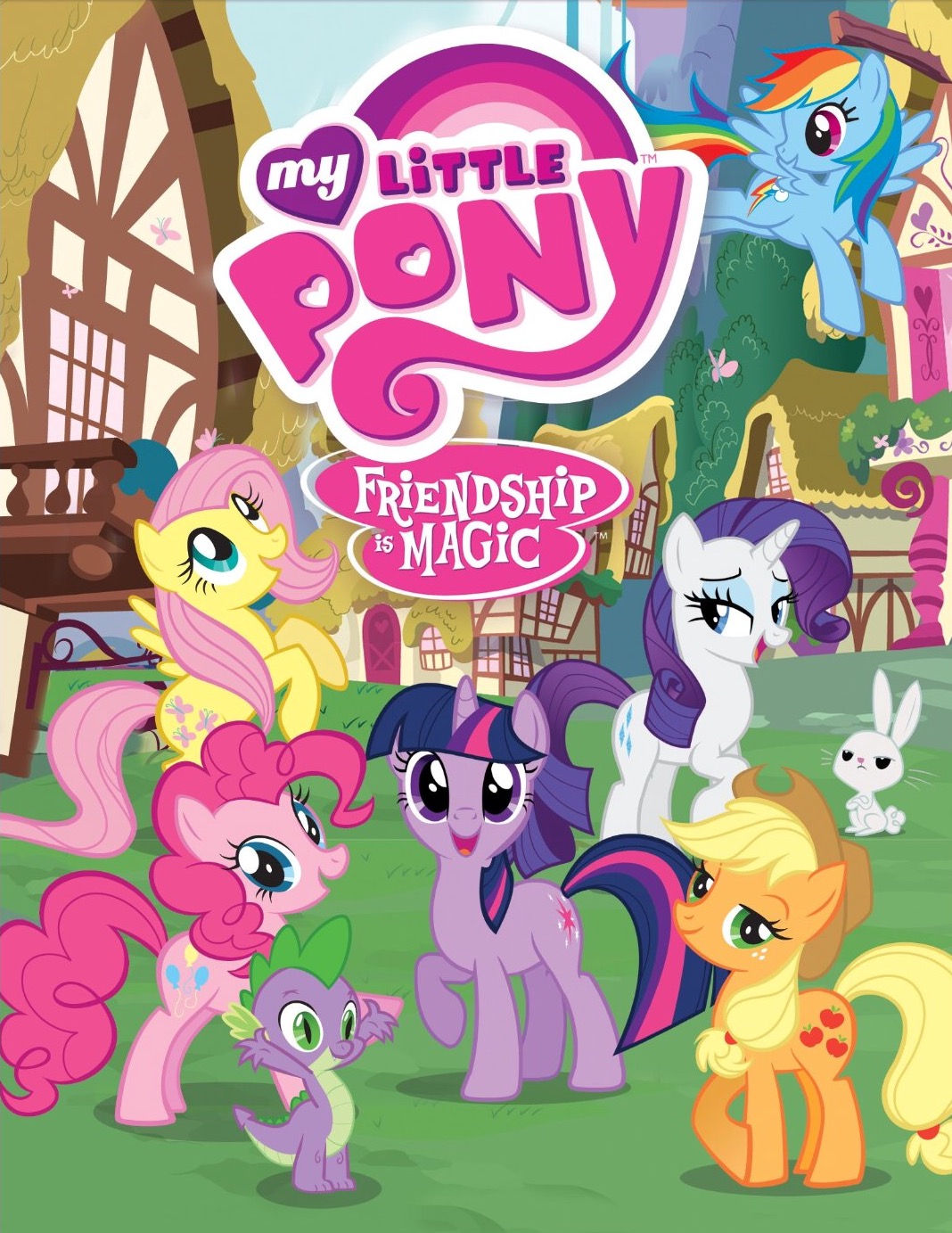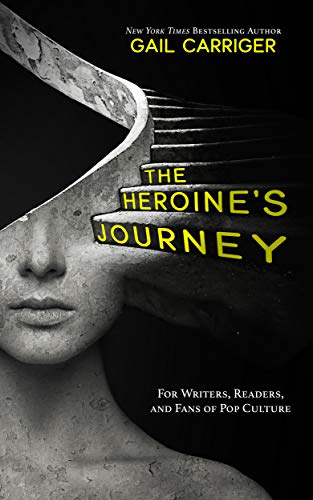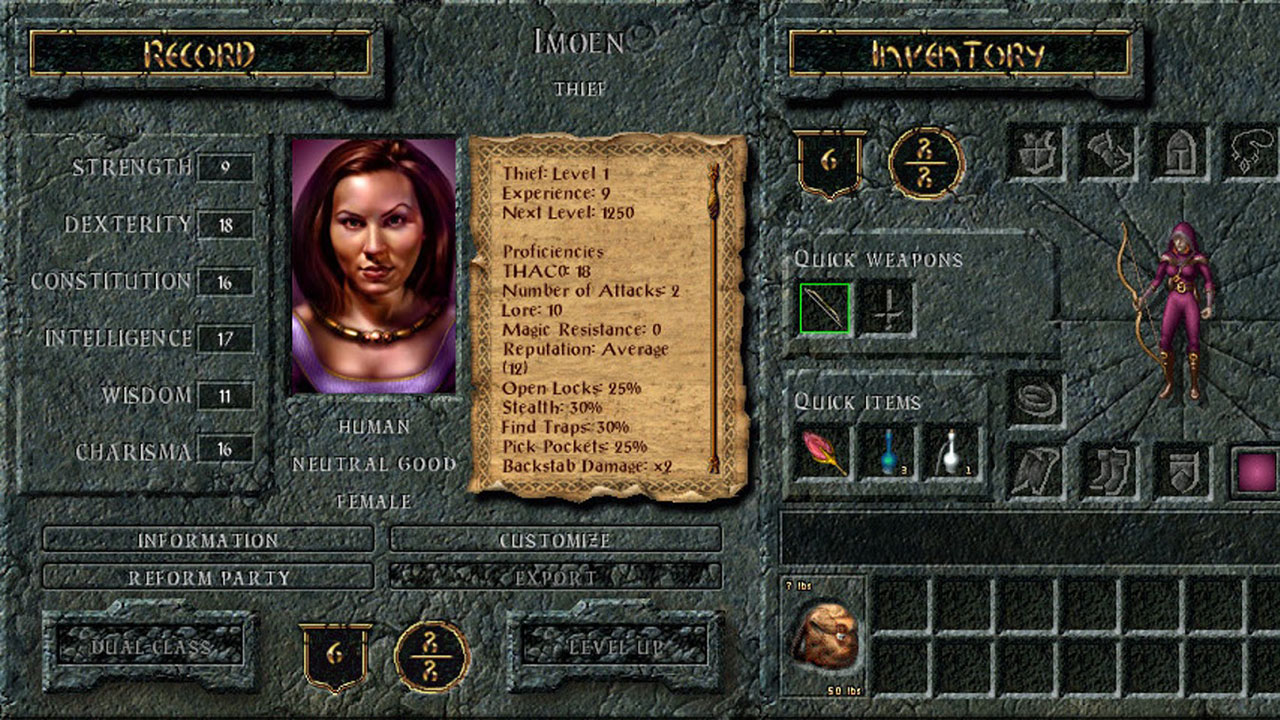The Re-Unification Journey of Isis & Demeter
Forging new bonds is the success state of this journey

While this version of the Fairy-Tale Journey appears second in my table of contents, it is in fact the last one I learned about. It crystallized a few things for me, and for me it’s a final piece of the puzzle. However, for the sake organization, I put it second on the TOC because it is the second oldest of the different versions of the Fairy-Tale Journey.
Should you read of the other three versions on the list, you’ll note they’re suited to everything from a Hallmark movie to Alien. But you may be noticing something in particular: while the Penelope, Inanna, and Psyche versions of the Fairy-Tale Journeys are focused on the Journeyer’s connection to their community, at the end of the day those Journeyers may sojourn alone, just as in the Mythic Journey. Although, in The Writer’s Journey Christopher Vogler mentions group heroes as an option.
Friendship is Magic

Fans of anime, or My Little Pony: Friendship is Magic, or stories such as Lord of the Rings, are usually fans of ensemble casts who are united in heroic adventures. However, so many beloved stories feature groups of heroes: Argonauts and Fellowships and Mane Sixes, and those are viable variants.
But how might you approach such a tale, especially for a Fairy-Tale Journey?
Well, Gail Carriger’s Heroine’s Journey provides a template. The inspiration for this archetypal journey is the tale of Demeter searching for Persephone, as told in the Homeric Hymn to Demeter. As well, the tale of Isis gathering up the scattered body parts of Osiris after he is murdered and dismembered by his brother Set.

In this version of the Journey, an initially isolated Journeyer must form a new network to succeed in their quest to reunify with lost family, or build a new family. Of all the versions of the Journeys, this version readily lends itself to a “Friendship is Magic” theme, as you will soon see. Here’s how it’s structured:
Act I: The Descent
- Precipitated by a broken familial network:
- An act of betrayal (usually) will cause the breaking of the Journeyer’s family network. In Demeter’s case, this occurs when Persephone is kidnapped, for Isis this happens when her brother-in-law, Set, murders her husband Osiris.
- Journeyer’s pleas ignored; Journeyer abdicates power.
- When the Journeyer’s familial connection is broken or severed the Journeyer, like Demeter, will cast off their defined social roles and/or divine power. Demeter and Isis quit doing their goddess duties to quest for their daughter or husband’s body parts respectively.
- Withdrawal is involuntary.
- Withdrawing from family is imposed upon the Journeyer, similar to the Classic Fairy-Tale Beat: the Journeyer loses their home, primarily because of the murder or kidnapping of family members.
- Family offers aid but no solution.
- As an example, Hecate and Helios help Demeter figure out that Hades kidnapped Persephone, but they can’t help her to get her daughter back.
ACT II: The Search
- The heroine’s loss of family yields isolation and risk.
- Alone, the Journeyer is forced to leave safety, civilization, and their own power, into “solitary, unacceptable risk.” The Journeyer lacks both information and power to complete the quest; isolation is a fatal weakness.
- Journeyer employs disguise/subversion and alters own identity.
- Having lost their original identity, the Journeyer tends to disguise or shift into new identities as needed, in pursuit of the goal of reunification with lost family. Demeter pretends to be an itinerant crone as she searches for Persephone.
- Journeyer appeals to and forms a surrogate network (found family).
- Friendship is magic: During this phase, the Journeyer builds a new network of friends and allies, or a network will find the Journeyer. Demeter strikes up a frienship with a family whose infant she tends to. Carriger states: “Her definition of power, therefore, is nested in information gathering and community.”
- Journeyers who have political power, will behave similarly to a general, dispatching people to commit various tasks according to their strengths. Isis sends her son Horus to fight his uncle Set.
- The Journeyer will seek aid from those the Journeyer deems best qualified to give it.
- Becomes a civilizing force on the Journey, e.g., Demeter & Isis build temples; Demeter teaches agriculture during a famine and Isis teaches mummification and hair braiding.
- The Journeyer finds solace in the good sense of humor of the new companions.
- In the event a member of the group tries to lone-wolf it in pursuit of superiority, the Journeyer will view this as a betrayal.
- Conflict will be oriented around different approaches to a shared goal.
- Journeyer visits the underworld, aided by friends/family.
- They’re “all in this together,” so they will do battle and face death together.
Act III: The Ascent
- Success in the search results in a new or reborn familial network.
- Forging new connections and rebuilding old ones is the success state, isolation is the fail state.
- This ties to negotiation and compromise that will benefit all.
- The Journeyer’s negotiation skills will integrate their power and positively impact their world and civilization. Demeter and Inanna negotiate to balance the seasons, and Isis for life and afterlife. Isis specifically creates the afterlife for Osiris to rule over after she resurrects him. This is always the final chapter of a journey, and the end of a series.
- Revenge or death of an enemy tends to be irrelevant
- Obtaining physical boons are also irrelevant.
- Reunion with those the Journeyer lost is the point
The importance of leverage

Something about Demeter’s actions intrigue me: Carriger points out Demeter has a temple built to herself, and uses it as an example of “spreading civilization.” And sure, it’s that.
But — do observe that as a goddess, Demeter relies on worship for her own power. All of the Olympians will as well. And, who steadfastly refused to help her get back her daughter? The Olympians. And what has Demeter not been doing while she was searching for Persephone? Oh, that’s right: seeing to the harvest. Humans enduring a famine would naturally pray to the goddess of the harvest, which would naturally increase her own power, no?
On the one hand Demeter punishes innocent humans for her plight, by withholding a harvest, and on the other hand she uses their affliction to gain an advantage for herself, against Zeus & Co. I submit to you that only when she gains sufficient leverage is she able to force the negotiation to get back Persephone. Demeter teaching humans about agriculture is atonement, because she is the one who withheld her power to the detriment of humans in the story.
The final stage of the Demeter-Isis Journey, as noted above, is negotiation for the benefit of all. But — the Journeyer, particularly one of a political bent, may find it prudent to grow their own power, marshal their own resources, and gain leverage to force a negotiation. In the book, Dune, Paul Atreides does not destroy the spice harvest at random, he has a purpose: He’s trying to force the emperor to come to Arrakis. With the emperor on Arrakis, Paul can have him to 1) Pay for having Paul’s father killed, and 2) Allow Paul to overthrow him and take his place as emperor.
The Fremen are the natives of the planet Arrakis, and as an adopted Fremen, Paul is able to obtain spice at will. He can stockpile as much as he pleases, but those who are not native to Arrakis can not do so. Paul has leverage because “the spice must flow,” and the legitimacy of the emperor’s authority hinges on whether the spice flows.
When the suffering of the protagonist is supposed to bring about their growth — what doesn’t kill them makes them stronger — the key to successfully pulling off the suffer → growth arc is to tie the suffering to a purpose. When Harry Potter is doing the “I must not tell lies” routine, he is suffering, true. But there’s a point: his torment is a result of his heroic refusal to lie to his classmates about the death of one of their own. No matter what his teacher Dolores Umbridge does to punish him, he will stand up for the truth.
Demeter and Paul Atreides are both mourning a lost family member, but they use their grief to achieve a strategic victory. They don’t wallow, which is a mistake an amateurish storyteller would have them do.
The Journeyer in a Demeter journey may indeed have to do unpleasant things in order to get to a compromise. But a self-aware Journeyer could redeem herself if she recognizes her wrongs and sets them to right again. Doing this retains audience sympathy and respect. Incidentally, the show Leverage may bear studying on this point.
Examples of how this Journey is used
This version of the Fairy-Tale Journey was particularly interesting to me, for two reasons. After reading Carriger’s book, I realized I used the Demeter-Isis Journey when writing my own trilogy, Shadow Wars. That Journey seemed instinctive to me; it suited my characters, their situation, and their mentalities.
But I think the reason it’s instinctive is because I’ve seen it so many times — in role playing games (RPGs). I’ve played the Black Isle Studios / BioWare / Obsidian RPGs since high school, and the Demeter-Isis journey is used all the time in those types of RPGs.
Let’s review:
Having to leave the family, particularly after a betrayal: Jade Empire, Dragon Age: Origins (especially if you play the human origin), Neverwinter Nights 2, Baldur’s Gate, etc.
Family offers aid, but no solution: DA:O, Dragon Age 2, NWN 2, etc. They tell you information to point you in the direction you need to go, or they give you special weapons, tools, or shelter. Hawke’s uncle in DA2 gives them his home as a refuge; Daeghun, the PC’s elven foster father in NWN2, explains about the shard the PC is carrying in her chest, an artifact of a battle between a sorcerer and the King of Shadows when the PC was a baby. In Dragon Age: Origins, a city elf’s father gives her (or him) a dagger owned by her deceased mother before she leaves their Alienage (a ghetto where elves live in the game).
Journeyer is obliged to cast off identity: You start NWN2 as a “harbor man” because you’re from the West Harbor area of the Sword Coast, a region in the Forgotten Realms. But quickly you become the Knight Captain; in DA:O you become the Warden, in DA2 you become the Champion, and so forth. Granted this is an artifact of the game programmers not knowing whether you’re playing as a male or female character, or your character’s name, since you choose it for yourself. But what could be a bug becomes a feature for for the story.
Leaving family incurs isolation/risk: In Baldur’s Gate, you leave Candlekeep with your foster father, Gorion. Candlekeep is safe, but the moment you leave the safety of the tower Gorion is killed. You are isolated and in danger, except fortunately for you, your best friend Imoen sneaked out of Candlekeep to accompany you.

Game mechanics mean you are typically too unskilled and low level to survive the ambushes by yourself, but with Imoen you can easily survive the journey to the Friendly Arm Inn, where you meet up with Gorion’s friends, Jaheira and Khalid. With this husband and wife team, you and Imoen begin building a party that includes people you meet on various quests.
The need to gather allies: this is the premise of “party based RPGs,” but I want to call attention to how Mass Effect 2 in particular makes use of it: in the old BioWare forums, before BioWare was bought up by Electronic Arts, there was one thread titled “Holding the Line,” a reference to Captain Kirrahe’s speech in ME1.
In ME2 it’s important to recruit your team, get to know them, and choose, like a general, who should lead which mission at the final quest. If the Player Character, Commander Shepherd, bothered to get to know the recruits, then the team may survive the final mission … and so does Shepherd.
If Shepherd failed to build the trust of the crew and get to know their capabilities, and chooses the wrong teammates to carry out specific missions during the final quest, then they all die … and Shepherd will have no one to save her at the end of the game, and will also die.
At the end of the final quest, Shepherd must escape the imminent destruction of the enemy base by leaping onto the space ship Normandy. But the only way to successfully make the jump is if a crewmate is present to literally offer a helping hand. If Shepherd’s teammates all died in the final mission, the only member left will the pilot, Joker — the one crewmate with bones too fragile to allow him to pull up a cybernetic, power-armored space marine.
In BioWare’s Holding the Line thread, several posters were confused that they made the wrong choices.
“But didn’t you notice that in Zaeed’s stories, he was always the sole survivor of missions? He didn’t think about the rest of his crewmates,” an observation many players made, to explain why using team member Zaeed to lead a particular mission would get everyone killed.
The fail state of the Demeter-Isis Journey is isolation, and this is exactly the fail state of Mass Effect 2. In RPGs in general it’s not a smart idea to solo at the expense of the party. You want the team to level up, and in the more advanced RPGs party questing is the best way to get access to information, missions, and special weapons / armors, spells, etc.
Journeyer is a civilizing force: In Baldur’s Gate 2, Neverwinter Nights 2, Dragon Age: Origins - Awakening, Dragon Age: Inquisition, and Pillars of Eternity you are given a fortress to rebuild. You as the player character have the option of clearing out bandits, bringing in new merchants, establishing chapels, etc. The ending of several of these games are influenced by how well the PCs fix up their strongholds.
Conflict based on different approaches: you see the influence system in play in Knights of the Old Republic 2, Neverwinter Nights 2, the Mass Effect games, and Dragon Age and its sequels. Influence is based on sharing values with assorted party members; some will approve of certain actions or lines of dialogue compared to others, and others will disapprove. If you have enough influence with assorted companions, you may be able to convince them to do certain things, e.g., not side with a demon, or to stand with you against it, or share a treasure, etc.
Journeyer descends to the underworld, accompanied by friends and family: In Baldur’s Gate 2, you literally end up going to hell with your party in order to defeat the main villain, Jon Irenicus. You are accompanied by your long-lost sister, friends, and potentially a romantic interest as well. All of the RPGs consist of going into a final battle in the company of the party; however.
These games have a strong fanbase, having inspired their own equivalent of “fan fiction” and fan-made modifications. And they effectively employ the Demeter-Isis Journey.
So. There you have it! Part of what made this version of the Journey click for me is that I tend to write a “triumfeminate,” which is like a triumvirate (a rule of three men) but is instead a “rule of three women.” That is, I usually imagine three primary point of view characters: a protagonist, deuteragonist, and trigatonist moving the plot and / or working together. Think Kirk, Spock, and McCoy. Albeit, for me there’s always a fourth POV character — male or female — who shows up later. None of that’s deliberate, that’s just how the stories come to me. Anyway, if you also gravitate to ensemble casts, I hope this is helpful in creating your own team journey. Go forth and write!
Further Reading
- Beat Sheet: Demeter & Isis Journey
Download includes PDF, .doc, .docx, and .page versions of the beat sheet